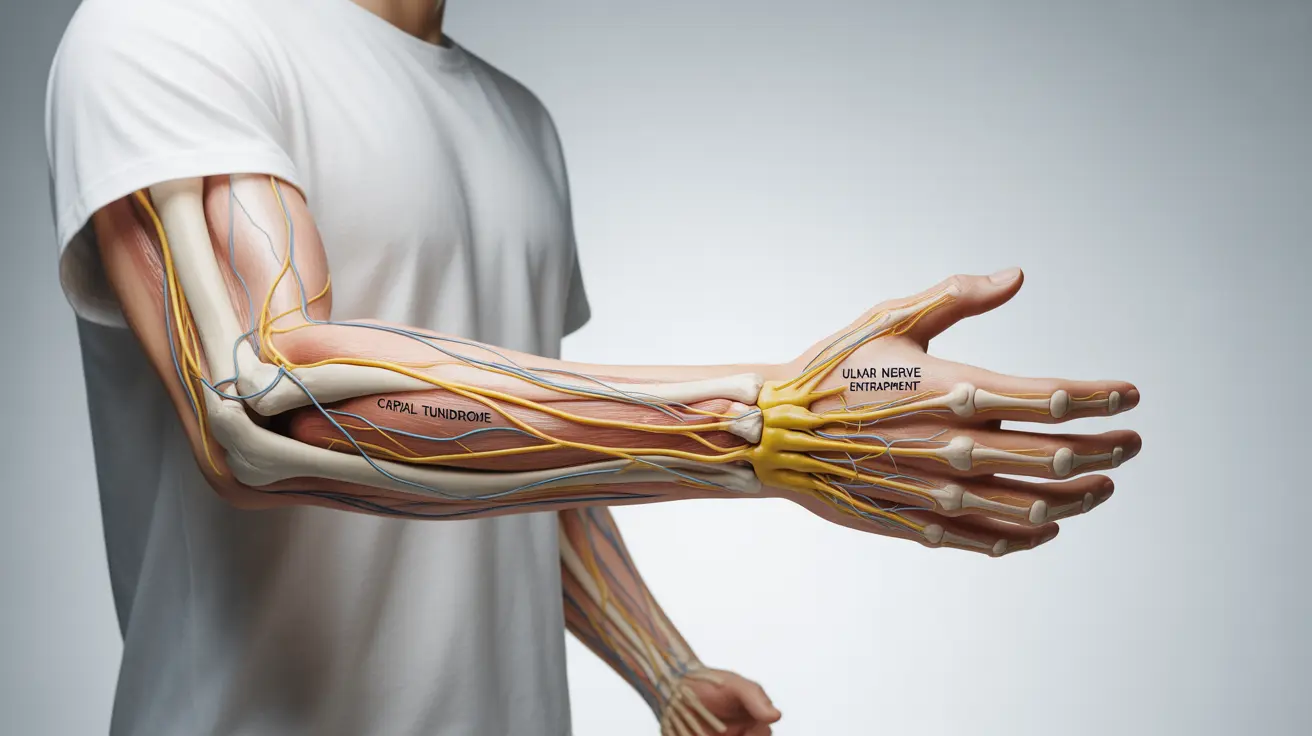Have you ever experienced that pins-and-needles sensation when your arm or leg falls asleep? While occasional numbness is common, experiencing limbs falling asleep easily and frequently can be concerning. Understanding the causes and knowing when to seek medical attention can help you manage this condition effectively.
This comprehensive guide explores the reasons behind frequent limb numbness, prevention strategies, and available treatments. We'll help you distinguish between harmless occurrences and situations that may require medical attention.
Common Causes of Frequent Limb Numbness
Several factors can contribute to limbs falling asleep easily and frequently:
Nerve Compression
The most common cause is temporary nerve compression, which occurs when pressure is applied to nerves for extended periods. This often happens when:
- Sitting or sleeping in awkward positions
- Crossing legs for long periods
- Maintaining the same position during sleep
- Resting on your arm while sleeping
Poor Circulation
Reduced blood flow to extremities can cause numbness and tingling. This may result from:
- Peripheral artery disease
- Blood clots
- Raynaud's phenomenon
- Extended periods of inactivity
Medical Conditions
Certain underlying health conditions can lead to frequent numbness:
- Diabetes
- Multiple sclerosis
- Carpal tunnel syndrome
- Peripheral neuropathy
- Cervical spondylosis
Prevention and Management Strategies
Lifestyle Modifications
Simple changes in daily habits can help prevent limbs from falling asleep:
- Regular position changes during sedentary activities
- Proper posture maintenance
- Regular exercise to improve circulation
- Ergonomic workspace setup
- Avoiding prolonged pressure on nerves
Medical Interventions
When lifestyle changes aren't enough, various treatments may help:
- Physical therapy
- Medication for underlying conditions
- Compression stockings for circulation
- Nerve gliding exercises
- Surgical intervention (in severe cases)
Warning Signs and When to Seek Help
While occasional numbness is usually harmless, certain symptoms warrant medical attention:
- Persistent numbness lasting several hours
- Numbness accompanied by weakness
- Sudden onset of symptoms
- Numbness affecting multiple limbs simultaneously
- Recurring numbness without obvious cause
Frequently Asked Questions
What are the most common causes of limbs falling asleep easily and frequently?
The most common causes include temporary nerve compression from poor positioning, circulation issues, and underlying medical conditions like diabetes or peripheral neuropathy. Simple activities like crossing legs or sleeping in awkward positions can trigger these symptoms.
When should I be concerned about frequent numbness or tingling in my arms or legs?
Seek medical attention if numbness persists for several hours, occurs suddenly without clear cause, affects multiple limbs simultaneously, or is accompanied by weakness, pain, or difficulty moving. These symptoms could indicate a more serious underlying condition.
How can I prevent my limbs from falling asleep due to nerve compression or poor circulation?
Prevention strategies include maintaining good posture, taking regular breaks from sitting, avoiding crossing legs for long periods, exercising regularly to improve circulation, and using ergonomic furniture. Sleeping in neutral positions can also help prevent compression during rest.
What treatments are available for nerve-related numbness or a pinched nerve causing limbs to fall asleep?
Treatment options range from physical therapy and nerve gliding exercises to medication for underlying conditions. In some cases, doctors may recommend compression stockings, lifestyle modifications, or surgical intervention for severe cases.
Can vitamin deficiencies or medical conditions like diabetes cause frequent limb numbness?
Yes, vitamin B12 deficiency, diabetes, and other medical conditions can cause frequent limb numbness. Diabetes-related neuropathy is a common cause of recurring numbness, while vitamin deficiencies can affect nerve function and lead to similar symptoms.




